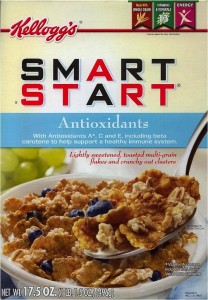Research alert: childhood obesity and how to fix it
It’s almost impossible to keep up with what’s being written about childhood obesity. The papers and commentary pour in. Much of this is well worth reading. If you want to keep up on the latest thinking about the issue, here are some places to start:
1. Health Affairs: Thanks to Matt Gruenberg for alerting me to the issue of Health Affairs devoted entirely to obesity topics. Here’s the Table of Contents.
The Robert Wood Johnson Foundation had a hand in this and discusses some of the papers on its website.
Even better, Health Affairs has produced a series of “issue briefs” to go with the journal articles. These are available on the Health Affairs blog. They cover:
- Overview: The State Of Childhood Obesity In America
- The Role Of Agriculture Policy In Reducing Childhood Obesity
- Food Marketing And Distribution’s Role In The Fight Against Childhood Obesity
- Speeding Up Progress In Fighting Obesity In Schools
- Lessons From States On Fighting Childhood Obesity
- The Pervasive Effects Of Environments On Childhood Obesity
2. FoodNavigator.com has a “special issue” on childhood obesity from the business standpoint:
Giving children the best nutritional start: With childhood obesity rates apparently sky rocketing around the world, celebrity chefs redesigning school meals, and international initiatives to influence what our children eat, now is an interesting time for child nutrition.
Kids’ food trends in the spotlight: Some major trends in children’s eating habits could change as the economy recovers – but foods marketed as natural and healthful are here to stay, according to a senior analyst at Mintel.
How characters can help children eat healthily: From Disney to Tony the Tiger, consumer groups have been campaigning hard to break the links between childhood icons and unhealthy foods. But furry friends and super-heroes are now putting in more of an appearance on healthy products.
Kids’ TV food commercials down, but cross-promotions soar: Cross-promotions on food packaging targeted at children increased by 78 percent between 2006 and 2008, according to a study from Yale’s Rudd Center for Food Policy.
3. Michelle Obama’s campaign:USA Today reports on Mrs. Obama’s talk to the school nutrition association, the organization of people who work in school lunchrooms – those who Jamie Oliver refers to as “lunch ladies.” Check out the coverage and see the video.
What is one to make of all this? Childhood obesity is a huge public health issue and deserves the attention it is getting. Let’s hope some of it works.


